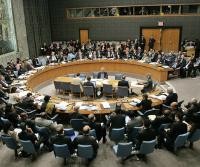Last week, the International Atomic Energy Agency reported once again that Iran had defied U.N. Security Council demands to stop enriching uranium. And in response, the United States once again demanded that international sanctions against Iran be made more severe. This call for sanctions -- which has become routine by now -- would be a lot more credible if it were not for a one embarrassing fact: The United States now lags many other countries in enforcing sanctions that the U.N. Security Council has already approved. One of the few real penalties to survive previous rounds of council negotiation over sanctions is an asset freeze on Iranian entities involved in missile and nuclear work. Yet of the 50 entities listed in Security Council Resolutions 1737 and 1747, the United States has frozen the assets of only 12 (pdf file). The European Union, by contrast, has frozen the assets of all entities named in both resolutions (see here, here and here). The lack of follow-through in Washington is baffling. Freezing the assets of Iran's nuclear and missile builders would inhibit them from buying crucial technology. It would also make it harder for them to finance their work. A freeze on assets would go beyond the general restrictions on U.S. trade with Iran that date from the 1980s.
U.S. Failure to Follow Through on Iran Sanctions is Baffling

